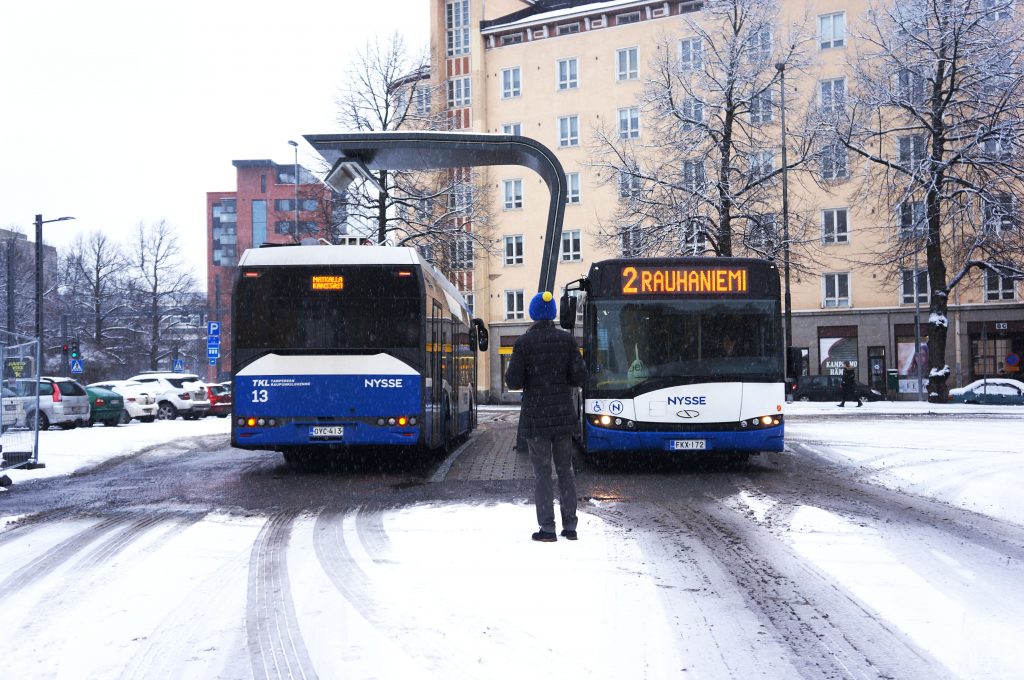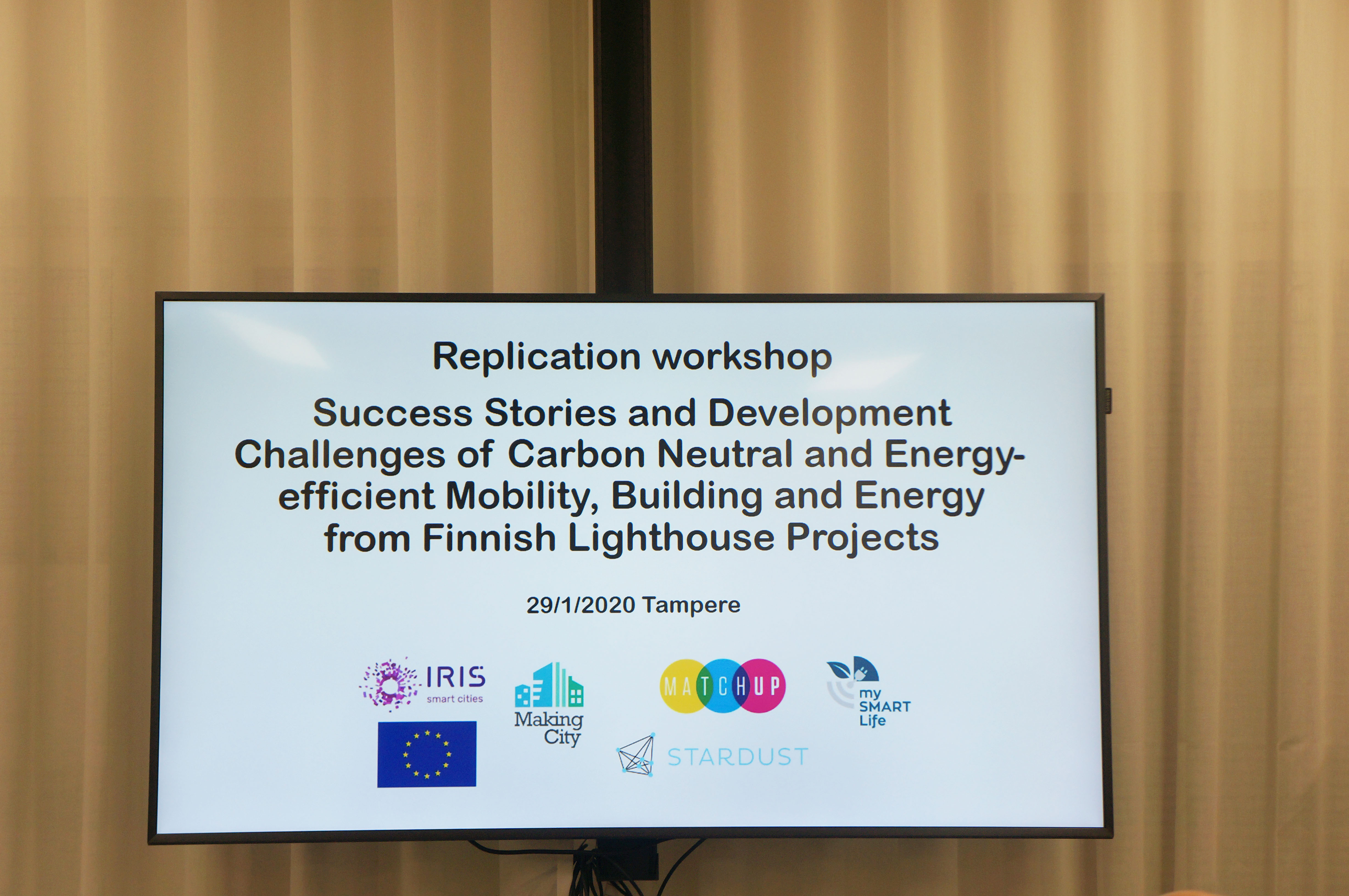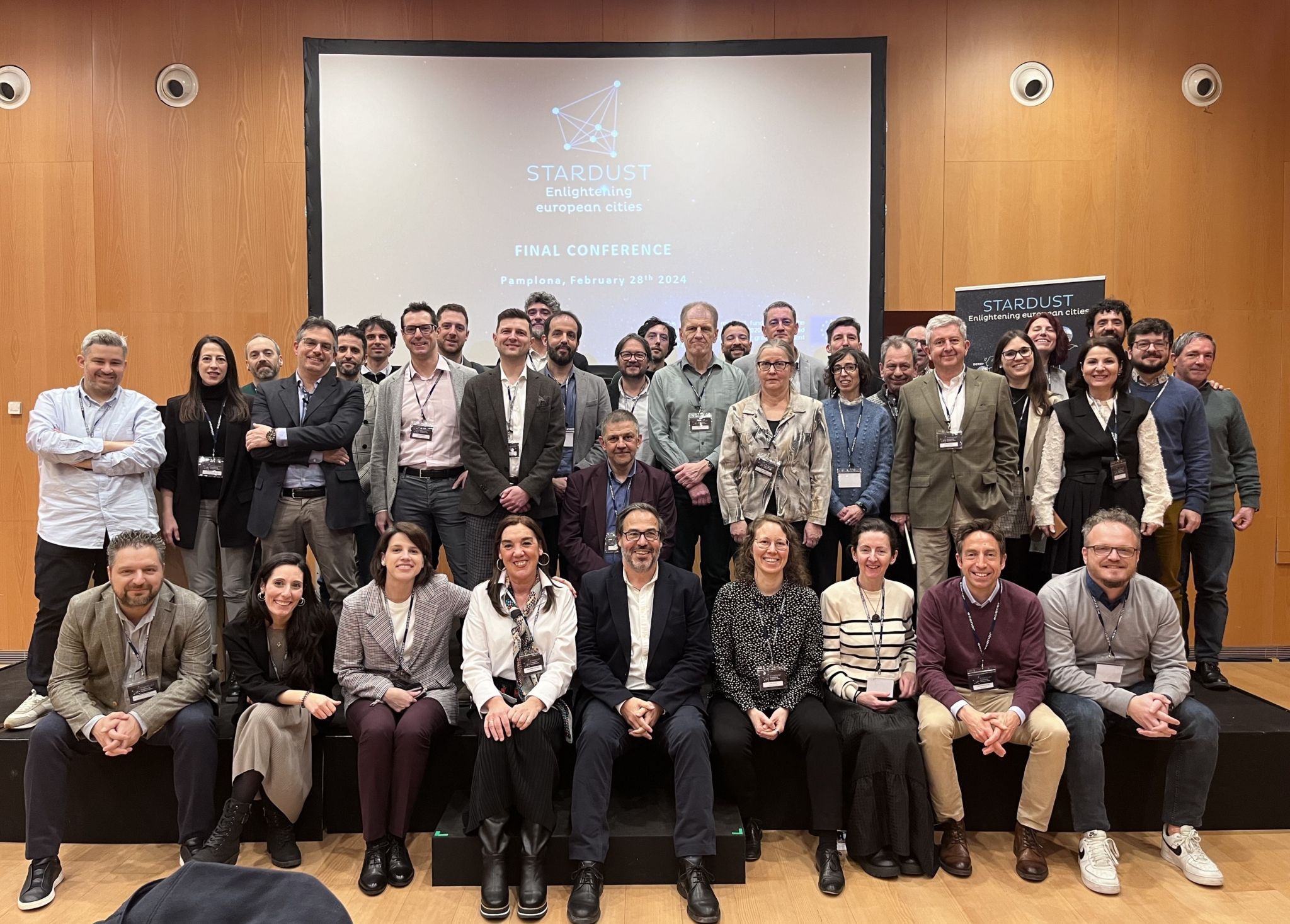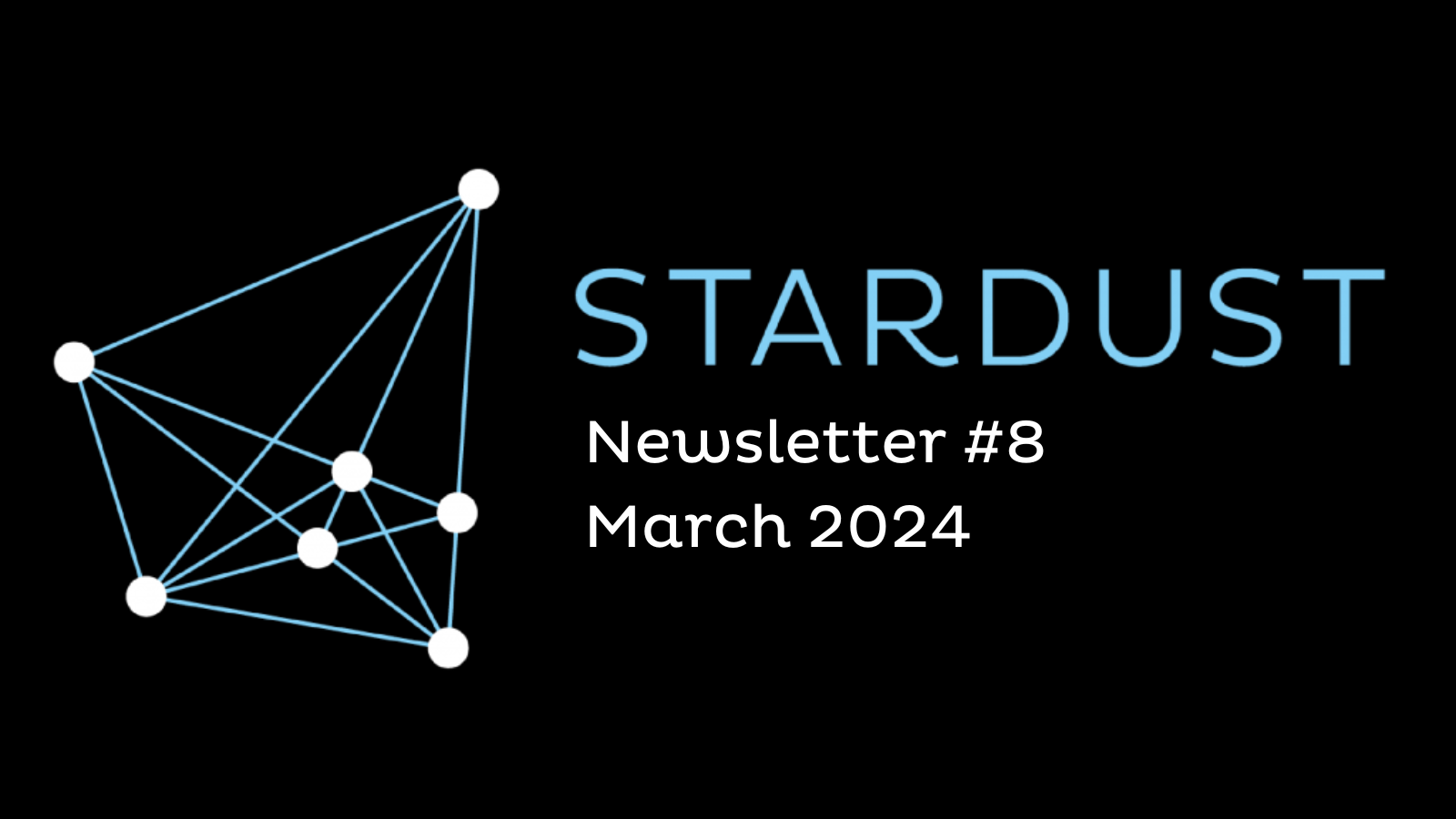For two days, the city of Tampere opened its doors to other cities and hosted two workshops on replication: the first one focused on Finnish cities involved in Smart Cities & Communities (SCC) projects and open to all SCC projects, and the latter on STARDUST’s Follower cities. Both workshops were part of the Tampere Smart City Week (January 25 – 31).
Perceptions from participants
On both days, some participants gave their testimonials as to how these workshops were for them. You can find the complete video interviews here:
Taken during the Replication Workshop with Finnish cities (29 January 2020)
- Juha-Pekka Häyrynen (City of Tampere, STARDUST)
- Maria Viitanen (City of Helsinki, MySMARTlife)
- Johanna Kuusisto (City of Kerava, MAtchUP) and Mauritz Knuz (City of Vaasa, IRIS Smart Cities)
Taken during the Replication Workshop with STARDUST Follower Cities (30 January 2020)
- Diego Brancatelli (Officinae Verdi Spa, STARDUST)
- Leo Strawbridge (City of Derry, STARDUST)
- Adrian Răulea (City of Cluj-Napoca, STARDUST)
- Maarit Vehviläinen (City of Tampere, STARDUST)
A country’s carbon neutrality goal can be met starting with its cities
Finland wants to be carbon neutral by 2035. To meet this goal Finnish cities need to do their part in setting up smart and sustainable solutions. As it takes years to construct and validate these interventions in one city, replicating them in other cities seems like the most viable step to fast-track the creation of other smart city solutions.
STARDUST’s Lighthouse city of Tampere hosted a replication workshop on January 29 to address this issue. Entitled, “Success Stories and Development Challenges of Carbon Neutral and Energy-efficient Mobility, Building and Energy from Finnish Lighthouse Projects”, more than 50 participants shared ideas and brainstormed on ways to overcome the different challenges faced by Finnish cities during the replication process. This event was held at the Tampere office of STARDUST partner VTT.
Smart mobility and energy efficiency case studies were shown in the form of teasers: representatives from Helsinki (mySMARTlife), Kerava (MAtchUP), Oulu (MakingCity), Tampere (STARDUST) and Vaasa (IRIS Smart Cities) gave 20 minutes presentations of pilot solutions and experiences Finnish cities wished to share. While doing so, they also pointed out the challenges they faced when executing these tasks. During the lunch break, everyone paid a visit to one of VTT’s laboratories to witness a demonstration on a self-driving car and to hear about the work of VTT´s Robot Vehicles Team.
Going beyond the technicalities, colleagues from STARDUST partner Officinae Verdi Spa, dived in to facilitate the discussion on legal and market barriers related to the said case studies. The issue on investment has been raised occasionally.
While the technology behind smart city solutions is new, they are often times more costly compared to conventional ones despite their leverage on sustainability. To support their replicability, participants suggest the following: finding other funding alternatives, adapting taxation laws that support these changes, popularizing public private partnerships i.e. public procurement process, building trust in the community and making these solutions’ results visible and transparent.
Revealing Tampere’s knowledge on smart city development
Tampere’s transformation did not happen overnight. As it was once known for its industrial heritage, the city moved on to greater heights by developing smart and sustainable solutions and districts for its citizens. The city aims to be carbon neutral by 2030, 5 years ahead of the country’s goal.
Held at the Main Library Metso, Finnish colleagues in STARDUST sat down with the representatives from the Follower cities of Cluj-Napoca, Derry and Kozani the following day and discussed with them how and what they managed to build these past years.
“Innovation is a novel idea that works.” began Matias Ansaharju from the City of Tampere as he opened the floor of the workshop. Technology has evolved rapidly yet relying solely on it would undermine the digital transformation and smart city development in a community. One would need to account for the people involved i.e. citizens and local businesses, the processes, and the accessibility of data. For a city to go forward, it must embrace diversity.
By setting the right state of mind to the Follower cities, STARDUST’s Finnish partners then laid out in detail the different solutions they have worked on under the energy, mobility and ICT sectors, as well as their results. Furthermore, everyone witnessed charging of an electric bus, which is stationed in one of the central bus lines in Tampere.
All throughout the day, these presentations were coupled with a facilitated discussion led by STARDUST partner Greenovate! Europe. This allowed Follower cities’ representatives to express their interest on the solutions they wish to bring back or transfer to their own cities. Finnish partners were also able to advise them on how they can proceed. Stories of everyone’s cities illustrated how different things work in their own countries, and thus the emergence of numerous legal and market barriers based on culture differences.
Nevertheless, with the city of Tampere sharing their knowledge to STARDUST’s Follower cities, the project consortium is confident that a replicable blueprint will be created and set in motion. This workshop is just the first of the many coming from the STARDUST’s Lighthouse cities.
Access to presentations:
Presentation materials shown during the Finnish replication workshop is made available here.
Presentation materials shown during the STARDUST replication workshop is made available here.



